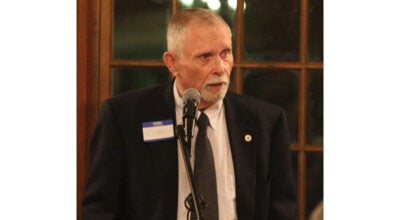Madison Street project draws heated debate
Published 10:50 am Wednesday, March 12, 2014
FRANKLIN—While ultimately the Madison Street Small Cities Community Development Block Grant (CDBG) resolution was unanimously passed by the Franklin City Council, the debate was fiery.
Before the vote happened, Ward 3 Councilman Greg McLemore packed up his things and left, after Mayor Raystine Johnson-Ashburn called police to the front of council chambers.
The project, which started in 2012, revolves around the revitalization of a neighborhood centering on Madison Street. A management team was created, which surveyed the community and found that areas with the greatest areas of need were Cobbtown, Banks-Cobb and Riverview-Meadowbrook neighborhoods. Ultimately, through public meetings, the Citywide Neighborhood Needs Assessment management team unanimously chose the Madison Street area.
The grant will help rehabilitate homes and make infrastructure improvements, mostly dealing with sewage and drainage.
The money, if awarded, will provide $1.23 million, while the city is expected to match a total of $312,004. The project will be worth approximately $1.6 million.
Of the people surveyed, 20 lower-middle income homeowners were willing to accept the aid, and 10 LMI tenant-occupied housing units also expressed interest. It could benefit 69 people. And there could be money left over to benefit more homeowners, if more interest is shown after seeing the rehabilitation of the homes. There are 54 total households in the area, which includes two duplexes.
As part of a new state requirement, residents receiving the benefits will be asked to pay a minimum of $25 a month over a 10-year period.
The debate centered on McLemore’s concern over the $25 per month and stated problems with a previous CDBG project on Langston Street, where the city acquired a tract of land from a homeowner. City Manager Randy Martin said the homeowner was paid for the property, and also given the building, which was relocated.
The most heated portion of the debate happened as Councilwoman Mona Murphy was talking about how the $25 a month could buy you something that you could not ordinarily get for that price, and McLemore interrupted her.
The mayor banged the gavel, and asked him to stop talking. Not long after, Murphy shouted McLemore down after another interjection, where he wondered why poor African-Americans were being asked to pay for something that would benefit the city. Johnson-Ashburn called for the assistant police chief and another officer.
“What infuriated me and caused me to walk out was the dictatorial way that Mrs. Johnson is handling these meetings,” McLemore said later. “I thought, that if any place would be open to debate or discussion, it would be during a council meeting.
“It wasn’t until I mentioned black people that she called the police.”
He said it was that discussion, not the interruption itself, which caused the police to be called.
“Whenever I am talking, she will interrupt me and start talking,” he said. “I don’t have a problem with that. I see it as spirited conversation. I didn’t say what I said to stop Mrs. Murphy from talking, I just wanted to interject something into the discussion.”
Johnson-Ashburn later said she wouldn’t entertain McLemore’s theory. She only acted to maintain order.
“I am charged with maintaining order in the meeting, and I am going to do that,” she said. “I gave everyone ample time to address the Madison Street project. At the point a councilor gets repetitive or disruptive, then I have to act.”
McLemore said he felt like the $25 a month might be too much to ask for some in the neighborhood.
“The city should take part of the $1.3 million grant and pay the fee,” he said. “I know $25 a month doesn’t sound like a lot, but suppose you are on a fixed income and you can barely afford the high utility bills, food and gas. You can’t afford an additional $25 a month.”
He also wanted to make sure that no citizen would be put in a position like the homeowner on Langston Street, where the project may turn into something a homeowner didn’t think he or she signed up for.
“I don’t want them in that situation, unless they are fully aware,” he said. “I asked for the housing authority to put in writing that this would not switch to become a redevelopment project, which could put them in jeopardy of a lien or foreclosure.”
The assurance has not been put in writing McLemore said.
“The people are skeptical, why can’t they put it in writing?”
Johnson-Ashburn and Murphy worried that scare tactics could cost people an opportunity to improve their lives, as the payments could get homeowners an average of $23,887 worth of work.
“I would like to say shame on the few people who have gone to our friends, neighbors and families and scared them into not signing on for this grant,” the mayor said. “For them to not take part in this when they need things done to their homes is just a shame. I would hope people will read for themselves.”
The mayor encouraged citizens to seek an attorney to help read the document if needed, or to talk with the city manager or Donald Goodwin, community development director.
“The budget does not include a line item for acquisition,” she said. “It is not possible. I would hope a few people would not penalize the people most in need.”
With Councilor Donald Blythe and McLemore absent, the resolution was unanimously passed.
McLemore said had he been there, he would have abstained, partially due to living in the area. He also didn’t want to vote against a project that could help people, should the potential problems be addressed.





